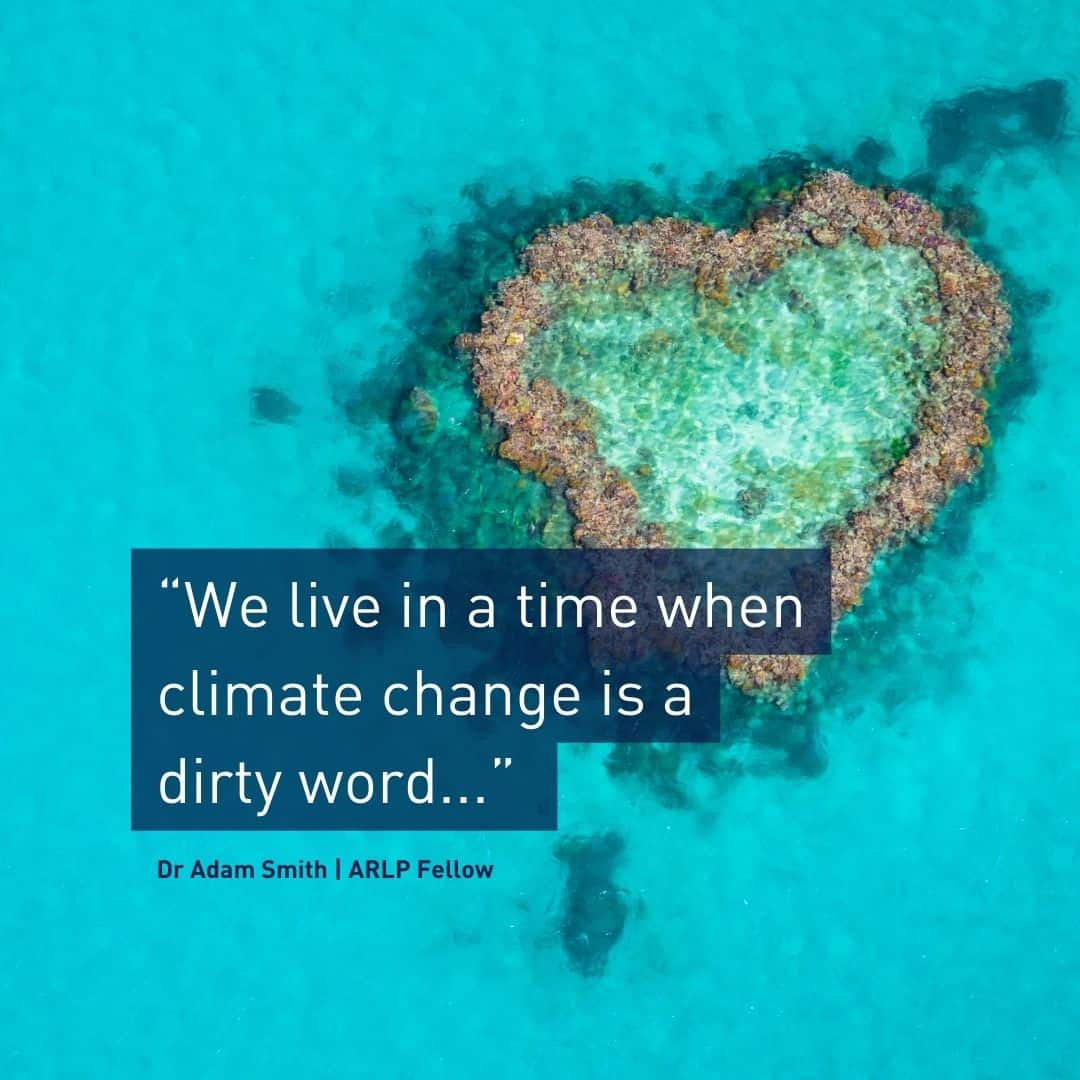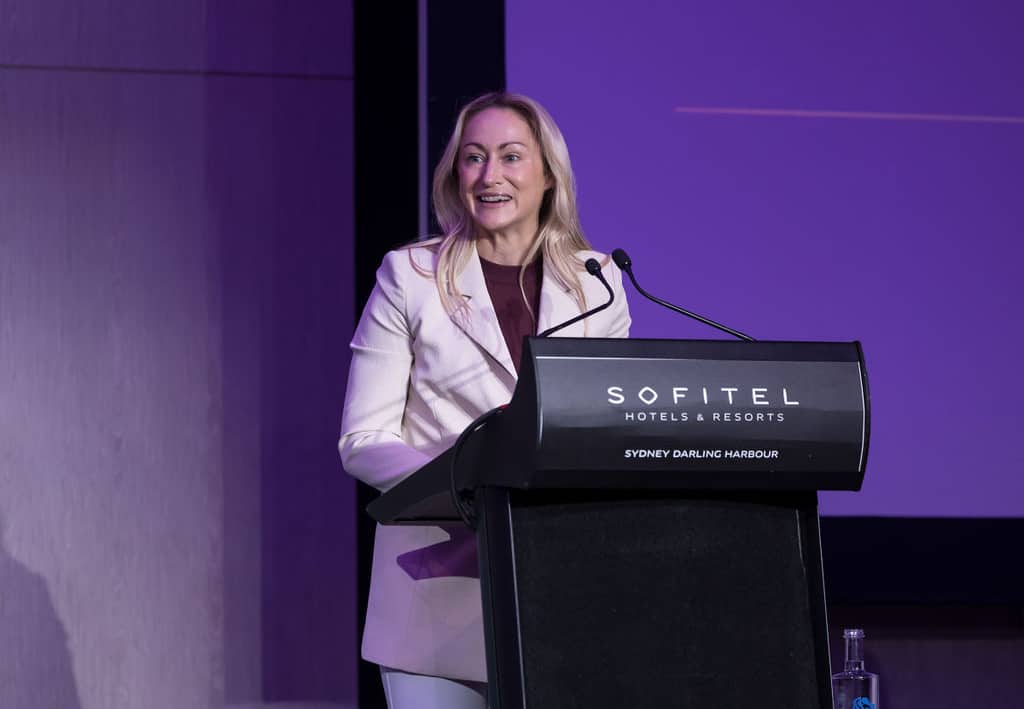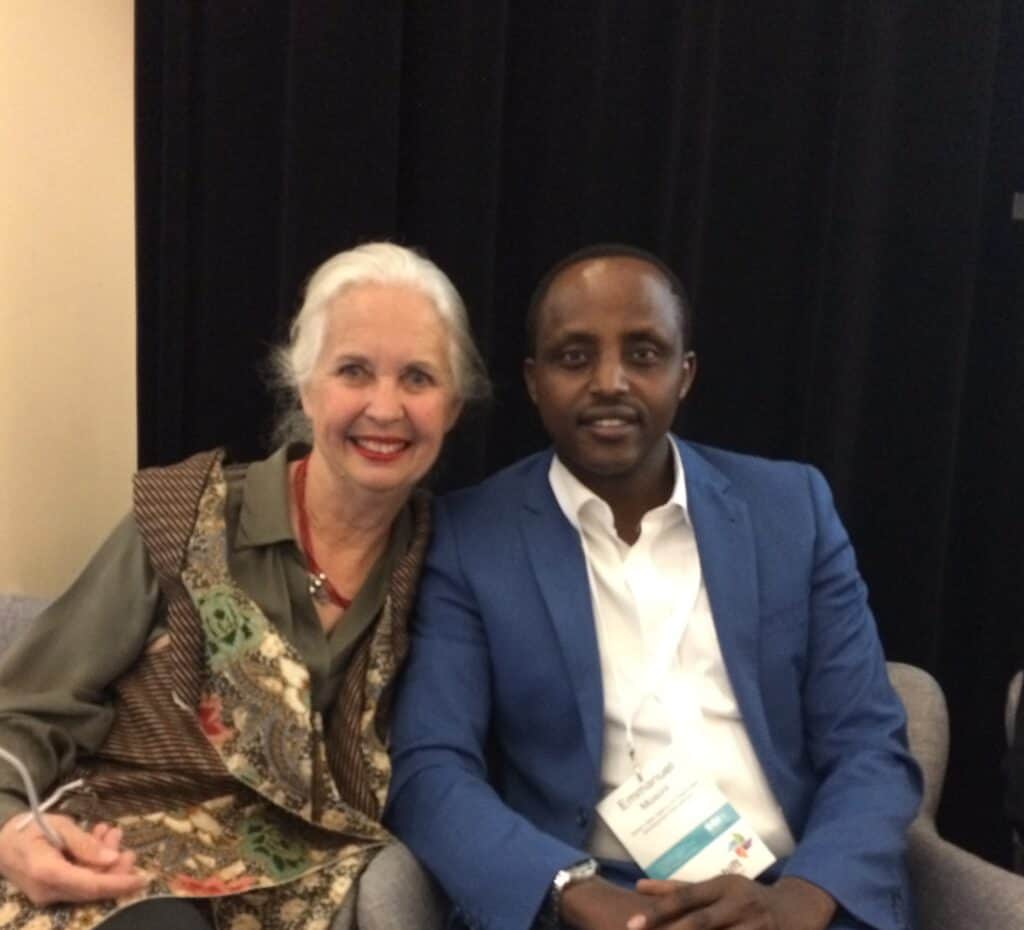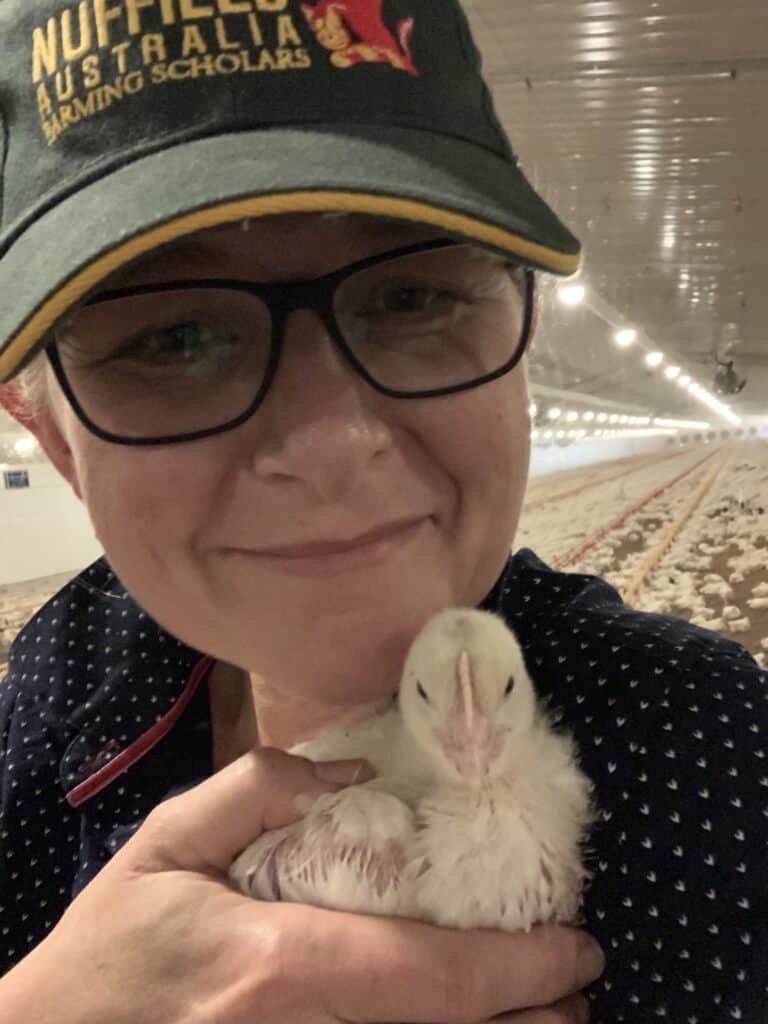OPINION
Dr Adam Smith is a fellow of Course 15 ARLP and proud that together we are driving change and fostering resilience in rural, regional and remote communities through the development of courageous and authentic leadership. He is concerned but also optimistic about leadership and the environment and has written this draft opinion piece to share with the network. Ideally, he would love feedback and for others to collaborate on this thought piece so together we can drive change and resilience.
Can an acronym help save the planet? We live in a time when climate change is a dirty word but the facts are that it is directly contributing to humanitarian, environmental and political emergencies from heatwaves, wildfires, floods, tropical storms and hurricanes and they are increasing in scale, frequency and intensity.
Acronyms use the first letter of words, or phrases, in a list, or sequence of events, to build a new word that can help you to remember better.
“We don’t have to engage in grand, heroic actions to participate in change. Small acts, when multiplied by millions of people, can transform the world.” Is a simple quote from Howard Zinn, an American historian, that we can all relate to and understand.
Acronyms are used by millions and billions of people. Most of us will be familiar with and use of acronyms for organisations such as NASA and KFC and many know of specific acronyms for processes such as first aid DRABCD, diving SCUBA and management using SWOT, SMART and PESTEL. We commonly use GHG, C02, ASAP and PIN. This audience
So I am going to suggest a new use for the acronym CLARA that may help share knowledge and translate into action for hopefully millions of people
C- Communicate
L- Leadership
A – Awareness
R- Risk
A- Action
There have been other acronyms that have been suggested that might save the world. Have you ever heard of CBDRILONCWRC? Nope, me neither. It is 12 letters long and I cannot pronounce it but it stands for “Common But Differentiated Responsibility In Light Of National Circumstances With Respective Capability.”
So let’s try something a bitter simpler and easier to remember and pronounce. CLARA (also a girl’s name) helps me and you to identify your individual or organisation’s key factors for climate, sustainability, environment or what is important to you and guides you to build on what you do well, address what you’re lacking, minimize risks, communicate actions and help create a sustainable future.
PS When I did a did a google search for CLARA the top hits were Clara Osbourne from Dr Who and a movie Clara about an obsessive astronomer and a curious artist form an unlikely bond which leads them to a profound, scientific discovery.
“Anything else you’re interested in is not going to happen if you can’t breathe the air and drink the water. Don’t sit this one out. Do something. You are by accident of fate alive at an absolutely critical moment in the history of our planet.” - Carl Sagan
Why
In order to play its part in meeting the 1.5 degree Celsius global warming target—set in the Paris Climate Agreement—many countries have a long-term goal to achieve net-zero emissions by 2050. As well as requiring institutional changes in policy, individual behaviour changes will be needed to achieve this goal.
While much progress has been made on the science and the types of policies needed to support a transition to low carbon, climate resilient development, a challenge facing many countries is engaging citizens who may not understand climate change, and garnering the support of those who are concerned that they will be unfairly impacted by climate policies.
My dream
I am a Fellow of ARLF and CEO of Reef Ecologic and our mission is Empowering people to deliver sustainable and innovative solutions and vision is Working together for a better planet. Our company is a B-Corp and we have won several local and global awards for environment and sustainability so we must be doing something right.
I read widely and talk to a lot of people about the state of our reefs, community, climate and planet. There is good news and bad news. Most people are very concerned (but some are sceptical) about the future of the planet but the short-term perception is that is it low risk and Business as Usual (BAU- which is an acronym that I dislike) is ok and government has a long-term plan.
I dream of a sustainable future where there is citizen understanding of global climate impacts and actions, business action and decisive government regulation delivered at a local level through communities. Unfortunately we have a long way to go for this dream to be reality but a journey starts with the first step and a conversation starts with the first word and a change in behaviour starts with the first action.
I live in Australia and we are currently stable as a nation with emissions at 463.9 million tonnes of carbon dioxide equivalent in the year to December 2022 – 0.4% or 2.0 million tonnes lower than the same period in 2021. This is a small positive reduction but a very long way from global targets and carbon neutral. The amount of carbon dioxide a typical Australian emits each year is around 15 tonnes.
https://ourworldindata.org/co2/country/australia
Though we often think about human-induced climate change as something that will happen in the future, it is an ongoing process. All of the ecosystems and communities in Australia and around the world are being impacted today.
The projections of a climate change-impacted future are not inevitable. Many of the problems and solutions are known to us now, and ongoing research continues to provide new ones. Experts believe there is still time to avoid the most negative of outcomes by limiting warming and reducing emissions to zero as quickly as possible. Reducing our emissions of greenhouse gases will require investment in new technology and infrastructure, which will spur job growth.
Providing solutions
It is not easy to save the world or change a behaviour but nothing worthwhile ever is. Yes, there is a complexity around language used (e.g., net-zero, greenhouse gases, carbon footprint, global warming etc) and the amount of information that citizens are faced with in the news and on social media, as well as sustainability information linked to products and services is confusing and send some of us into grief. But it spurs others into action.
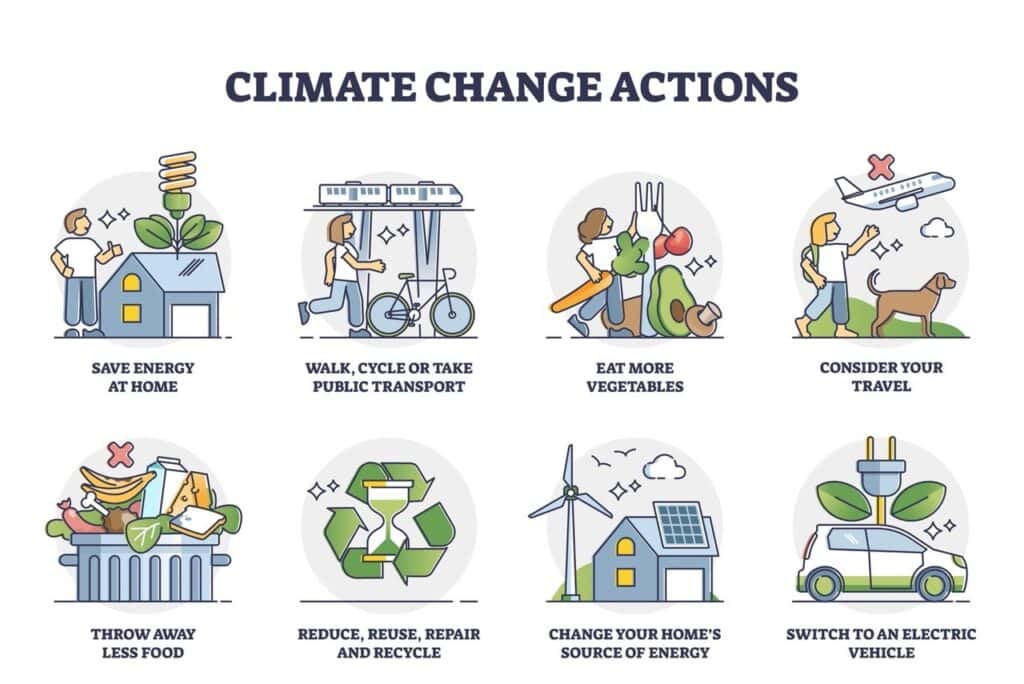
"The esteemed scientist is not the one who says “the reef is bleaching or dead” but the person who mobilises change to reduce climate impacts" – Adam Smith
Operating sustainably ensures an efficient, resilient and innovative organization that not only does less harm to people and the environment, but also does more good and makes a profit in the process.
The traditional top-down approach to addressing political, economic, social, technologic and environmental crises is a critical piece of the equation. But a community approach is essential to support or oppose the above and to help reshape public thought, shift cultural tendencies, and affect long-lasting changes in our behaviours.
So a community based approach I am suggesting that may help me, you and us is CLARA
- Communicate- the first step is to talk about it with friends and seek different views.
- Leadership- is about stepping forward, communication, collaborating and a common purpose.
- Awareness- improve your awareness of the climate issue and risks and calculate your Ecological Footprint©which is the only metric that measures how much nature we have and how much nature we use. https://www.footprintcalculator.org/home/en
- Risk- develop a simple climate risk assessment for you life, family, home, business or community. Project out to 2030 or 2050.
- Action- based on your risk assessment focus on three actions: one for yourself now, one for your community in the next 12 months, and one for the planet during that next five years that are positive and will reduce risk.
*We welcome engaging articles on thought leadership from our alumni. If you have an idea, we’d love to hear from you – communications@rural-leaders.org.au


